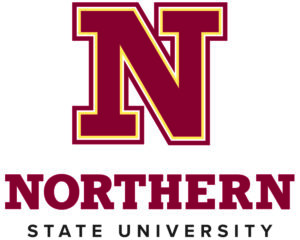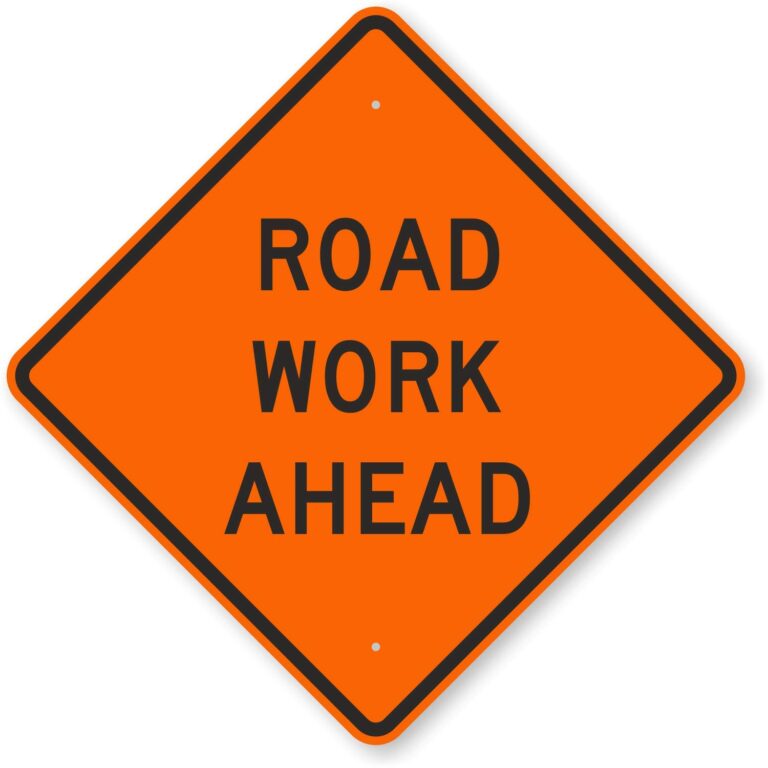With the 2022 midterm elections approaching soon, a vast majority of South Dakotans feel that our nation has become less civil — and they place the responsibility for improving civility on a variety of institutions and individuals, including themselves, according to a new statewide poll.
Nearly eight in 10 registered voters (79.0%) who responded to the poll said that civility in America has gotten worse over the past five years, while only 2.6% said civility has improved during that time. In addition, 16.4% said civility has remained the same, while 2.0% were unsure, according to the poll.
Civility, according to the Merriam-Webster dictionary, is defined as “courtesy and politeness” or “a polite act or expression,” though definitions of civility may vary widely among individuals.
Meanwhile, registered voters who responded to the poll said they believed that political leaders have the most responsibility for improving civility in America. However, respondents also placed a significant responsibility on themselves for making the country more civil.
The cell phone and landline poll of 500 registered voters was conducted in late July by the Mason-Dixon Polling & Strategy firm and was commissioned by South Dakota News Watch and the Chiesman Center for Democracy at the University of South Dakota. The 500 registered voters surveyed closely match the breakdown of the statewide electorate in terms of political affiliation, gender, age and geography. The margin of error was plus or minus 4.5%.
To further examine and understand the poll results, News Watch interviewed three experts on civility in South Dakota to get their views and insights on civility in America. Here are their responses.
Larry Pressler, 80, a native of Humboldt, S.D., is a Rhodes Scholar and Harvard Law graduate who served two tours of combat duty in the Vietnam War before launching a political career that included two terms in the U.S. House of Representatives (1975 to 1979) and three terms as a U.S. senator (1979 to 1997). Pressler served in Congress as a Republican, but ran as an Independent in an unsuccessful bid for the U.S. Senate in 2014.
Pressler, who is battling two forms of cancer, now splits his time between Washington, D.C., and South Dakota, but will move permanently back to the Mount Rushmore state in the coming months.
Interviewed by phone, Pressler said the News Watch poll results provide more evidence of what he says has been a troubling shift toward negativity and division in American politics and government.
As civility has declined, Pressler said, it has become more difficult for groups and individuals to make progress on critical issues because they can’t seem to get beyond their distrust or disagreements with others.
“The lack of civility is very unproductive and it makes life miserable,” Pressler said. “Some people seem to like all this conflict, but I don’t; I like a conflict-free environment. I like to work together with people on a friendly basis when I can.”
Pressler describes himself politically as a “moderate” and a “centrist,” and he is dismayed by what he sees as a “very serious problem” in regard to increasing negativity and a worsening lack of civility in America.
“Sometimes conflict is necessary, and when you don’t approve of what they’re doing or saying, then you have to speak up,” he said. “But I’m a great centrist; I’m a passionate, extreme centrist. I believe in the middle of the road in politics and in life, and I believe in compromise as a way forward.”
The increasing divisiveness, he said, has resulted in a growing unwillingness of lawmakers to work on real problems in a bipartisan fashion. The trend has manifested itself over the past 30 years on both sides of the two-party political system, he said.
“When I first started out in politics, in 1978, I ran issue-based campaigns, and one could still talk about issues, such as labor, spending, communications, and farm issues,” Pressler said. “I didn’t engage in a lot of flashy language and harsh criticisms. I stuck to the issues, but I’m not sure you could even do that now and win.”
Pressler said many political leaders have gone negative in campaigns because they have seen that the American public tunes into, remembers and reacts to messages of conflict and negativity.
“I got defeated because it got so negative, and even as my consultants advised me to go negative, I chose not to and I lost,” Pressler said. “What I found is that people love to listen to negative ads, that they respond to those, and that’s too bad because as a result, a lot of good people have gotten out of politics.”
Pressler said the news media has exacerbated the incivility in politics because reporters often tend to seek out conflict to report on, placing lawmakers in a position where any perceived misstep is highlighted or overanalyzed. Working with members of an opposing political party or agreeing across the aisle is now seen as weakness or a lack of conviction, whereas in the past the ability to work in a bipartisan fashion was celebrated, Pressler said.
“Each party is afraid to socialize with the other…so you’re constantly on guard when you’re around members of the other party, and that’s really unfortunate,” he said.
While in Congress, Pressler, then a Republican, said he used to sit next to former U.S. Rep. Rick Nolan, D-Minn., on flights from Washington to Minneapolis and the two would cordially talk about issues and seek out bipartisan solutions to major problems.
Pressler, an avid news consumer, said he’d recently read about lower church attendance in America and lower participation in civic and service clubs such as 4-H. At the same time, Pressler said he is troubled by an increase in road-rage incidents and more harsh language being used by leaders in politics, government and industry. He noted how impressed he was by coverage of the funeral of Queen Elizabeth II of England that showed thousands of British mourners waiting in line for hours without any pushing or shoving or incidents of anger or violence.
“It’s the mood of our country, that there’s a mean-spiritedness in the country right now,” he said. “I think we’re becoming less religious, less God-centered, less willing to serve other people. We must resolve to get back to our basic values.”
Pressler said the path to greater civility may require a return to some of the long-held tenets of American life and can begin in homes, schools, churches and service clubs. To increase civility and improve society, Pressler said, individuals must make a choice to be more caring, accepting and respectful to others, and he encouraged parents and educators to foster a sense of civility and social responsibility in children from a young age.
“For starters, we can go to church more, and we can have discussions about morals and ethics in our schools. In our homes, we can teach our children and grandchildren to do something nice for somebody else today, just the basic old-fashioned concept of love and service to our fellow man,” Pressler said.
“It sounds sort of goofy and a little idealistic, but I think we can do it, and I think we’ll be all right, but we have to be careful because we’re becoming a very coarse nation. We have a lot of work to do, because we’re at a critical point in our nation’s history for some reason, and I’m worried about that.”
Matthew Moen is a former dean of Arts and Sciences at the University of South Dakota who has spent years studying civility in government and politics while also trying to improve civility in South Dakota and the country as a whole.
Moen, 64, has been on two sojourns to better understand the growing lack of civility in American politics and to try to counter the trend.
In 2015-2016, he received a grant from the Chiesman Center for Democracy to travel across South Dakota and speak to residents about civility and how to increase it. Then, in 2017-2020, he traveled 28,000 miles around the U.S. to talk about civility in American public life as president of the Gettysburg Foundation.
Moen said the American system of government was built around accepting and encouraging both conflict and compromise, and the three branches of government are in place to ensure that even as people or groups disagree, the favored and expected outcome is one in which no single person or group has too much power that can be abused.
“The system is really predicated on and structured on good will and acceptance of outcome, and compromise, based on the fact that there’s a deliberate diffusion of political power,” he said. “The whole system is predicated on people being able to work together in order to advance public policies that improve peoples’ lives, and if you don’t have that, you have constant turmoil rather than resolution of intractable public policy problems in a large, complicated, diverse country.”
Moen said political scholars began to document the decline in civility years ago, long before the 2016 presidential election brought a noted, highly visible decline in established decorum.
“People saw this coming and began to write about it, and it’s almost like it accelerated; it’s like the old adage that revolutions sometimes happen slowly and then they happen fast, and it seems like with incivility it was building slowly and then it may have happened rather quickly,” Moen said.
Given the consistent doses of harsh commentary and conduct present in modern American politics, Moen said he is not surprised that South Dakotans who responded to the News Watch poll were well aware of the decline in civility.
“We’re witnessing it firsthand, we feel it in our hearts, and I think we have a growing unease that this is becoming more of a permanent fixture in our politics,” he said.
In his work for the Gettysburg Foundation, Moen used examples from the Battle of Gettysburg — an 1863 Civil War battle in which as many as 50,000 soldiers were killed or wounded — to illustrate the value of civility in the wake of such tragedy.
“After the battle was over, the citizens of the community came together to care for soldiers on both sides without regard to uniform,” Moen said. “You have the biggest battle in the history of North America, and afterwards that are incredible acts of kindness and gentility and care.”
Moen said he uses the Battle of Gettysburg to illustrate that if civility could rule the day after such a horrific conflict, then Americans today can surely find the will to act in civil ways.
“It became a lot of what I talked about, the policy prescriptions to improve civility in American public life, and my message was that we can get through this season of ill will that has risen among us in America,” he said.
Moen noted that civility in politics tends to falter when party control of Congress is unsettled or in question, as it is heading into the 2022 midterm elections and in recent congressional elections.
“Compromise is really the lifeblood of how the American system is structured, and compromise and conciliation are now seen as vices and not virtues by many partisans on both sides,” he said.
A lack of collegiality in Congress may also be due to fundamental changes in how lawmakers behave, Moen said, as they spend less time in Washington, less time working together as a group, with more time and energy devoted to fundraising or pushing political agendas not tied to real issues and problems.
“What we all feel uneasy about is that the lines are shifting, and the boundaries are moving partly because the political leadership is willing to move them with an eye toward national public policies and national politics rather than with an eye toward solving intractable public policy problems with their colleagues,” he said.
Moen equates civility closely to good manners, and notes that in a basic sense, “It’s much better to live in a country where people have good manners.”
Moen said his mood about the current state of civility in America shifts regularly back and forth between optimism and pessimism. But he insists that working passionately toward greater civility is well worth the effort.
“Some people have asked me, ‘Why do you even bother?’ And I would say to them that we have to try, that I don’t know what else to do,” he said. “The alternative is just to accept that this is how American public life now is, but we have to keep after it and keep trying even if at times it seems kind of futile.”
Moen said there may be some institutional-level changes that can increase civility, such as enacting ranked-choice voting and campaign-finance reform, and further regulating big technology companies.
But Moen also pointed to ways that individuals can and should try to heighten civility in their communities, and thereby in society as a whole.
“More rhetoric around kindness and acceptance and love and compassion by individuals and institutional leaders would be helpful,” he said. “It would also be helpful to put problem-solving as the focus and purpose of American politics, rather retaining the boxing match it’s turned into.”
Moen added: “There are many solutions out there and things that can be done, but one big question is, ‘Are people currently in the mood to do them?’”
Jason Herrboldt, 43, is the chief banking officer at First Bank & Trust in Sioux Falls who just completed a one-year term as the president of the Sioux Falls Downtown Rotary, where he led efforts to expand civic engagement and civility in eastern South Dakota.
Herrboldt said he does not typically experience incivility during his regular personal and professional interactions with people in Sioux Falls and across South Dakota.
And yet, after reviewing the News Watch poll results, Herrboldt said he understood why many respondents felt that civility was in decline in American government and society.
“There are so many issues right now that are very charged, and a lot are political in nature, and our politicians and leaders in other fields should take ownership over how we are talking to one another about these very important and charged subjects,” he said.
Herrboldt said the recent poll results should be “a wake-up call” that everyone in society should improve their behavior, even if it’s difficult at times.
“The statistics are pretty stark, and I am, of course, discouraged and disheartened,” he said. “But I think that just tells us there is a lot of work to do, and to remember that no worthy cause comes easy.”
Improving civility, Herrboldt said, will require people to eschew the quick-hit, sensational responses to issues and problems that dominate social media and much of the political discourse these days. Instead, he said, civil behavior requires an investment of an individual’s time and energy into listening to others, learning facts and gaining context, and then approaching discussions of problems with trust and openness.
“If you start with good intentions, which isn’t always easy, but if you believe someone on the other side of a discussion comes with good intentions, that’s a wonderful place to start,” Herrboldt said. “If you assume the person on another side of a discussion is coming with bad intentions, it’s very hard to listen with the goal of understanding, and it’s very, very difficult to communicate verbally in a way that is respectful.”
Herrboldt called on individuals to reconsider how they speak to and interact with others in their daily lives, but he placed an additional burden of improving civility on those in leadership positions in politics, government, business and civic institutions.
“The burden of leadership is very real, and we as leaders need to raise the bar on ourselves because people are listening,” he said. “It should be a wake-up call and lead us to do more and to raise the bar on how we are interacting with each other, because people are always paying attention and taking cues from leaders.”
While Herrboldt was disappointed to see the News Watch poll results, he added that he is hopeful that with greater thoughtfulness, increased kindness and more respectful interactions, America can become more civil over time.
“It’s not going to happen overnight, and we’re not just going to wake up the next day and say, ‘Wow, everything is so much better,’” he said. “But if people listen to understand, and are mindful of how they are talking with one another, that leads to a civil discussion, and the more we do that, the more civil our society will be.”










